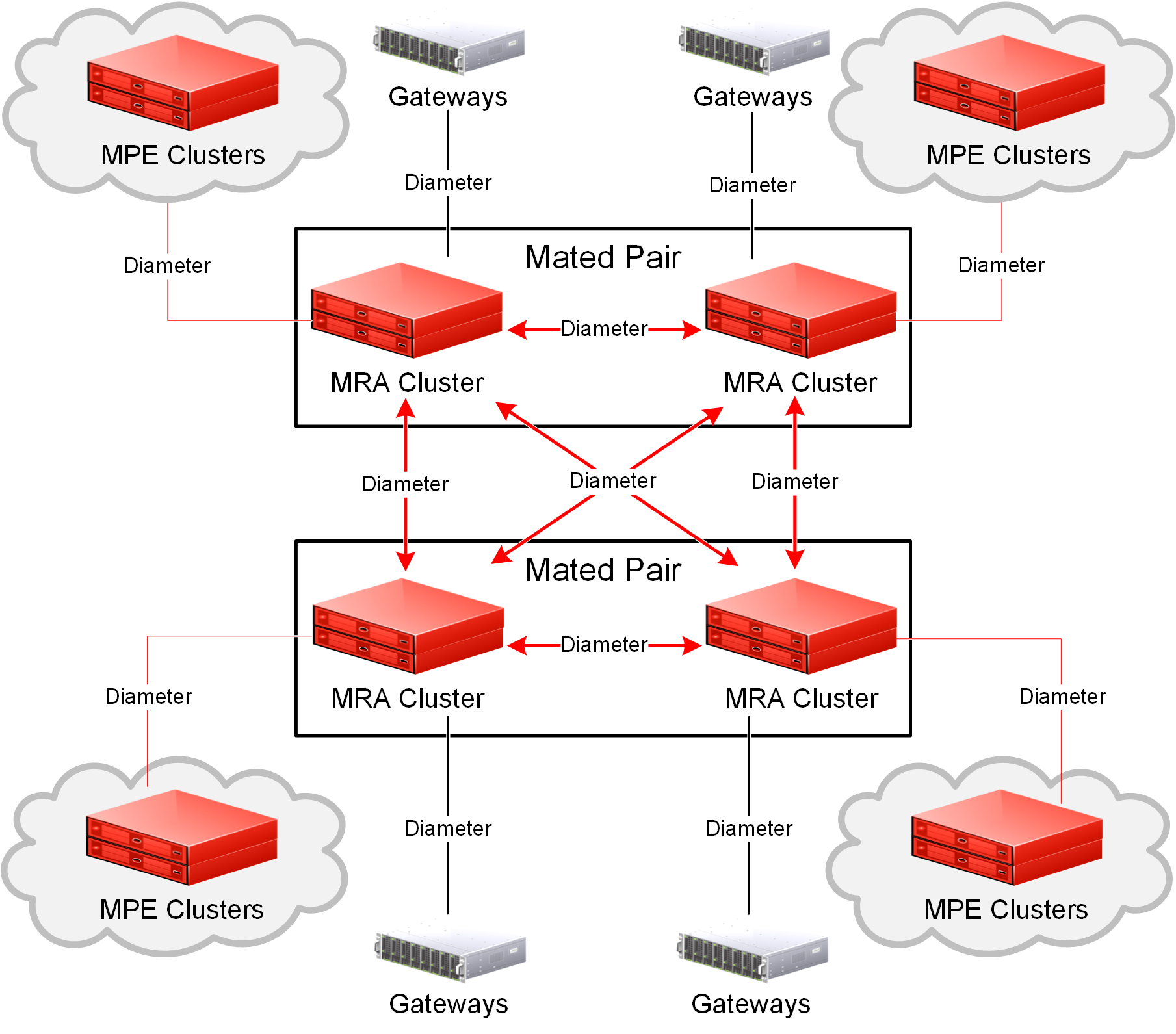The Multi-Protocol Routing Agent (MRA) (also known as the Policy Front End) is a product deployed in a Policy Management network that maintains bindings that link subscribers to Multimedia Policy Engine (MPE) servers.
An MRA server correlates traffic between different sessions for a subscriber ensuring that all reference points reach the same MPE server when multiple and separately addressable MPE clusters are deployed.
An MRA server implements the proxy (PA1 variant) DRA functionality whereby all Diameter Policy and Charging Control (PCC) application messages are proxied through an MRA server.
When an MRA server receives a request for a subscriber for which it has a binding to an MPE device, it routes that request to an MPE device. If an MRA device does not have a binding, it queries other MRA servers in the Policy Management network for a binding using the proprietary Distributed Routing and Management Application (DRMA) protocol. If another MRA server has the binding, the MRA server routes the request to it. If no other MRA server has a binding, the MRA server that received the request creates one.
An MRA server can route requests across multiple MRA clusters within the Policy Management network. Multiple MRA clusters can be deployed in the same domain, (or realm), interconnected as Diameter peers. Each MRA cluster is responsible for a set, or pool, of MPE clusters as a domain of responsibility. Each MRA cluster is a peer with the MPE clusters in its domain of responsibility. The following diagram shows a typical MRA configuration.
For information about the MRA server and how to configure the server, see Policy Front End Wireless User's Guide.
